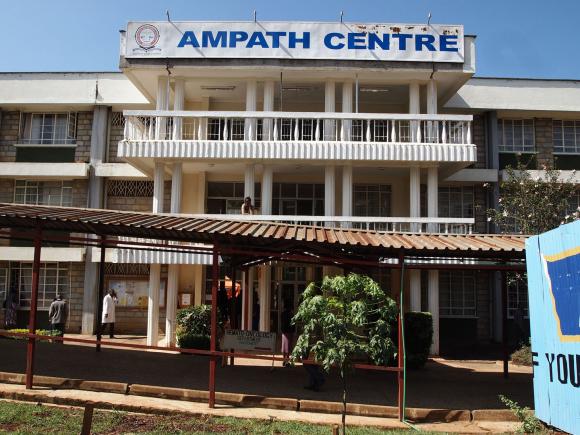
Grant supports use of data science to optimize HIV care
A Brown University biostatistician and an infectious disease specialist have received a $3.5-million grant to develop new ways to use data from patient health records to optimize effectiveness of HIV treatment where resources are limited, such as in the developing world. They will work with an HIV care program in Kenya that provides healthcare to more than 130,000 patients a year.
PROVIDENCE, R.I. [Brown University] — HIV can be treated, but not every infection responds the same way. Treatment requires monitoring and testing, a practice that can become expensive for health care systems in the developing world. With a new grant from the National Institutes of Health, Brown University professors Joseph Hogan and Rami Kantor will lead an effort to develop data-driven techniques to improve the effectiveness of monitoring treatment and to maximize the benefits associated with using expensive diagnostic procedures.
Hogan, professor of biostatistics in the School of Public Health, and Kantor, associate professor of medicine at the Warren Alpert Medical School, will combine their expertise to develop statistical methods, software, and laboratory technologies that use clinical data from patient records to improve HIV treatment monitoring decisions. Their work will develop strategies to optimize timing and frequency of costly diagnostic procedures such as drug resistance testing and new methods for ‘batch testing’ to reduce the number of laboratory assays needed to determine individual patient viral loads.
In addition to developing the statistical framework and theory for these ideas, Hogan and Kantor will create practical laboratory methods and protocols that can be tested, refined, and implemented in AMPATH, a comprehensive HIV care program based in Eldoret, Kenya, that sees more than 130,000 HIV-infected patients a year.
Brown University is a member of the AMPATH Consortium, whose 18 North American institutions collaborate with Moi University in Eldoret on HIV research, care, and training. Hogan is co-director of biostatistics and Kantor is research director of the Brown University-Kenya Program. He studies the effectiveness of HIV treatment and its relationship to drug resistance.
Hogan said the project, supported with $3.5 million over five years, could demonstrate how more sophisticated use of data can improve medical care.
“This grant is emblematic of the emerging field of ‘data science,’ wherein new and innovative methods of statistical analysis and computing are directly motivated by and applied within a specific context,” Hogan said. “Despite the fact that most of the world’s people with HIV live in low- and middle-income countries, patients and doctors in places like Kenya do not have the resources needed to follow treatment guidelines that are used in the United States and Europe. The President’s Emergency Plan for AIDS Relief, which funds many aspects of care in AMPATH, is narrowing this gap. We hope that projects like ours can help AMPATH and programs like it make the best use of the information and resources available to them.”
Kantor said the work will produce not only academic but clinical benefits.
“It will combine multidisciplinary clinical, laboratory, and statistical expertise to improve care for HIV-infected patients in settings where physicians need to limit the tests they conduct for patient care due to infrastructure and resource constraints,” Kantor said. “Development of methods and close work with and training of clinicians and laboratory personnel in Kenya, as we propose to do, will impact patient care and optimize resource use.”
In addition to Hogan and Kantor, the team includes Tao Liu, Allison DeLong, and Mia Coetzer of Brown, Michael Daniels of the University of Texas, and Lameck Diero, Wilfred Emonyi, and Ann Mwangi of Moi University in Eldoret.
沒有留言:
張貼留言